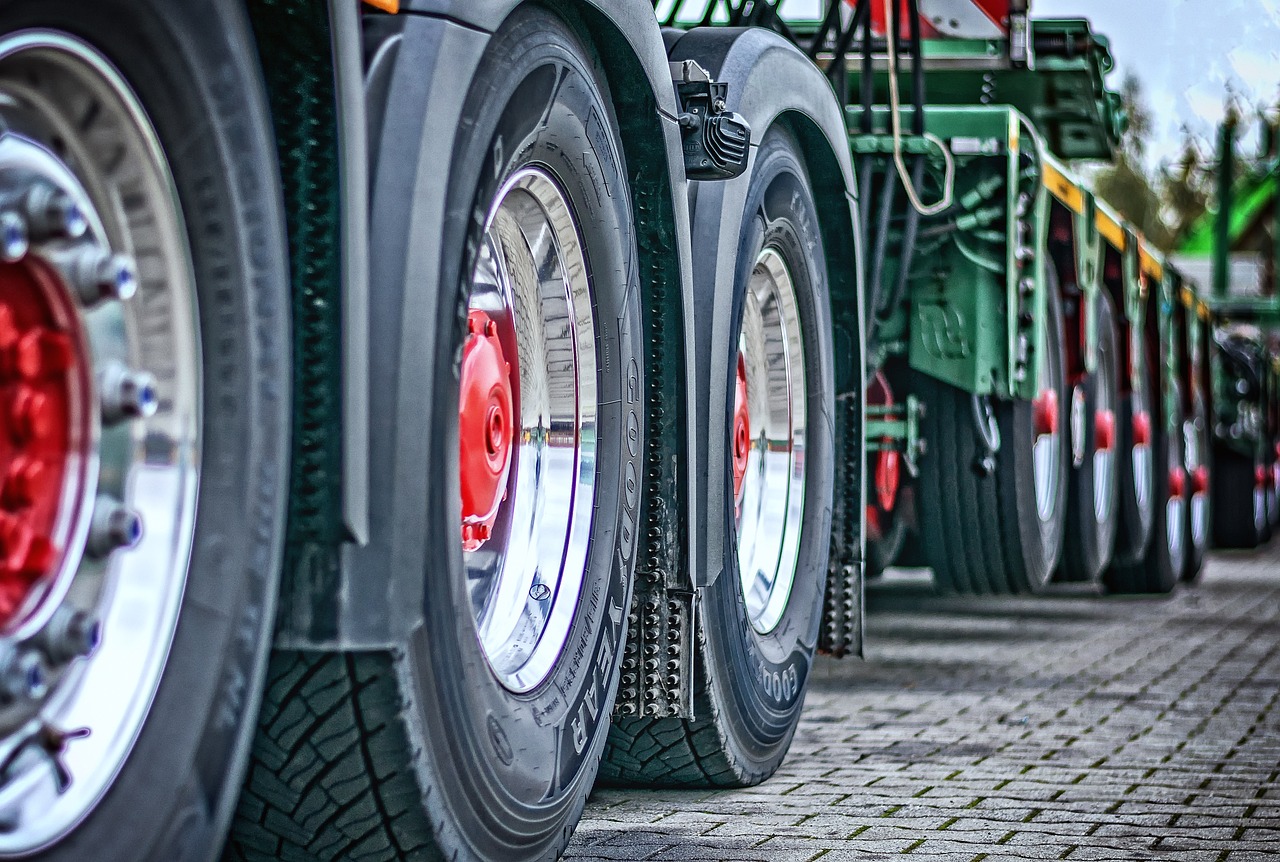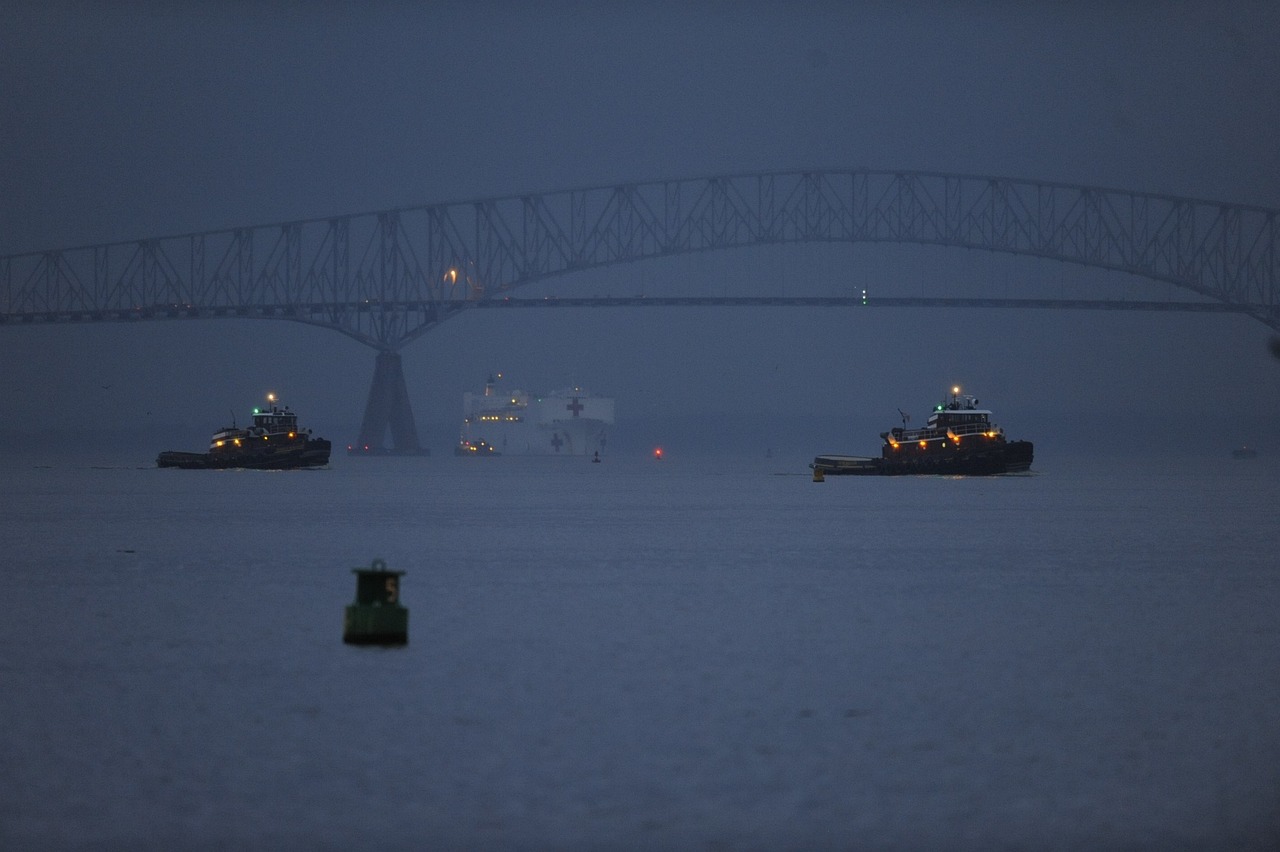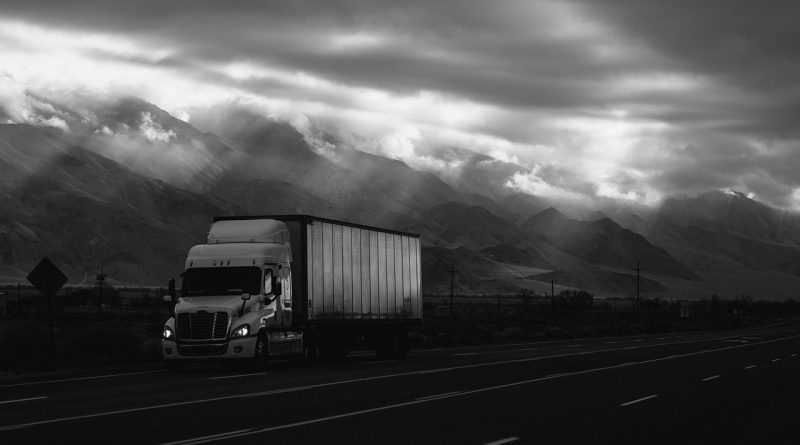Key Bridge Collapse Creates Obstacles, Opportunities for Trucking Industry
BALTIMORE – With the tragic collapse of the Francis Scott Key Bridge in the morning hours of March 26, and the corresponding closure of the Baltimore Harbor, many are wondering what impact these two events will have in the Baltimore area and beyond. To learn what may be in store for commerce – especially the trucking industry – we spoke with fellow Marylander Ed Miller. Miller has more than forty years of management and ownership experience in many aspects of the motor carrier industry. From 2003 to 2010, he worked in the Office of Freight Logistics at Maryland’s Department of Transportation, where he served on numerous county, state, and national transportation and research advisory committees. A Vietnam veteran (US Navy Seabees), Miller is the author of A Trucker’s Tale: Wit, Wisdom and True Stories from Sixty Years on the Road (2021 Apollo Publishing). He lives in Rising Sun, Maryland.
BPE: Thank you for taking some time to speak with us today. As a fellow Marylander, who awoke last Tuesday morning to the horrific news that the city’s Francis Scott Key Bridge collapsed after the 10,000 container-capacity vessel Dali collided with a bridge pillar, what were your initial thoughts of the bridge collapse and its ramifications?
Miller: I was shocked that a ship could bring the bridge down that easily. Of course, when you get a couple million pounds, going at eight miles an hour, it can knock something down, which it did.
I was saddened by the loss of life, and for the number of people – up to 30,000 a day – that travel that way. And there’s a lot of people who depended on that bridge for their livelihood. There are perhaps 20,000 jobs in transportation and the port, and it’s going to be shut down for the foreseeable future. Then, there are the cars that come and go, and the containers which are severely affected. That bridge and the port impacts so many lives.
BPE: Do you have any idea how much cargo passes over that bridge?
Miller: Well, I can’t say for sure, but I can tell you that bridge handles traffic that cannot go through the two Baltimore tunnels. The tunnels have several restrictions (Vehicles higher than 13 feet 6 inches or wider than 8 feet are prohibited from using the I-895 Baltimore Harbor Tunnel. The I-95 Fort McHenry Tunnel has restrictions of 14 feet 6 inches in height and 11 feet in width.) And a lot of truckers don’t like to drive through the city. So, to make up for the loss of the bridge, many will be driving an additional 30 miles around the Baltimore Beltway (695).
In addition to commercial vehicles, which may exceed size restrictions, anyone that’s pulling a travel trailer most likely will have propane or butane on board. They can’t go through the tunnels either. The same is true with trucks hauling hazmat (hazardous materials). So, they’re also gonna have to travel that extra 30 miles around 695.

BPE: The bridge was not only essential for cargo hauls destined for ocean-going shipping, but for shipping goods by land up and down the east coast?
Miller: Certainly. You know, that property just north of the bridge has been built up for Amazon, FedEx, and a number of other distribution centers. None of them can get their packages across the bridge anymore, so they’re also gonna have to do that trek around 695, or use a tunnel or go through the city. And again, very few people are going to do that city drive with a large commercial vehicle.
BPE: It’s your belief that truckers would be more inclined to do the big circle around the beltway than to try and squeeze through the city?
Miller: Oh, yeah. Now, maybe some of the container folks, that have gone that way in the past, will drive through the city, because they can go right down Boston street and get to where they’re going. The majority of people – if they’re not hazmat – will go through a tunnel. If they are a hazmat, or wide load or something, they’ll have to go around 695.
BPE: Aren’t the Maryland Port Authority and bus terminals also on the north side of the bridge?
Miller: Yeah, and that traffic will be affected as well, so alternatives will need to be found. (Logistics professionals are mitigating to minimalize such changes and delays.)
BPE: The trucking industry aside, what sort of delays in supply lines, do you think these travel changes are going to make?
Miller: I wouldn’t think a whole lot with supply would be affected. There’s plenty of fuel, for example, that comes out of the Colonial Pipeline, and there shouldn’t be any shortage of diesel fuel. It’s early yet, but I wouldn’t think there’s going to be a whole lot of delay in the area. (*Editors Note: Bloomberg News is reporting that Colonial Pipeline, the largest fuel pipeline system in the US, is rationing space on a small line to Baltimore in a move that signals demand is exceeding capacity after a vital bridge collapsed.)
BPE: How do you think the closing of the Port of Baltimore is going to affect the national economy?
Miller: Nationally, not a lot should be effected, because inbound ships that were headed into Baltimore are going to Norfolk, Philadelphia, New York, and other ports.
BPE: And that increased traffic to those ports shouldn’t cause any substantial delays?
Miller: I don’t really foresee any delays. Baltimore is not heavily dependent on containers. They do a lot – 3000 to 4000 a day is not insignificant. But Norfolk has one of the biggest ports in the country. They certainly have the ability to handle containers which might otherwise come in here. But there is added cost, of course. Coming up the bay is a whole lot cheaper. A drop off in Baltimore for something going to Hunt Valley, say, will be cheaper than it is coming from Norfolk or Philadelphia to Hunt Valley. There’s gonna be added costs, too, for the shippers and receivers for those extra miles. Ultimately, you and I are going to be paying for that.
BPE: Even if the bridge collapse and corresponding port closure don’t have a huge impact nationally, it’s certainly going to have an impact here in Maryland – especially in Baltimore.
Miller: Yes, it is, though I can’t see at the moment the economic impact other than folks not having a job. It’s certainly going to impact the container haulers. Haulers usually work every day – Monday through Friday. They need to to pay for their trucks, the fuel and everything else, and they’re not going to be able to do that for awhile. So they will be impacted. Workers locally are going to be impacted. And shippers will be impacted, too. It’s going to cost them more to send their containers and roll on / roll offs to other ports.

BPE: Isn’t there a flip side to the Key Bridge collapse re-routing issues, in that it could help truckers and the trucking industry economically?
Miller: It should. Shippers and receivers still want their goods to come and go, and to move them, they need someone to get them somewhere, right? Philadelphia, New York, wherever it is. But yes, I would certainly think a lot of truckers are going to have a lot to do.
BPE: And trucks will play a large part in the rebuilding of the bridge?
Miller: Well, the administration says that they’re going to pay for the reconstruction of the bridge, so whatever it takes, America pays for it. We have trucks which will move material, and cranes that can lift entire ships, so I don’t think there’s going to be a problem. Hopefully, we won’t take too long to do that.
BPE: One final question which may be beyond our crystal balls: With the port being closed indefinitely, and shipping temporarily shifting to other east coast ports, could that shift have a detrimental affect on the Port of Baltimore? I mean, if for now the shippers move their business to Wilmington or Philadelphia, at some point might they say, “Why don’t we just continue to ship to Wilmington, etc?”
Miller: I worked for the Department of Transportation for seven years. And I got to work somewhat with the port. Everything I’ve ever heard about it was loving. Maersk, MSC, you name them – they all love what the Port of Baltimore does and how they do it. You can bring a ship 200 miles up the Bay from Norfolk, and save a lot of money in transportation costs, because you get closer to shippers and receivers.
I can’t imagine anybody doing a better job than the Port of Baltimore. So the bottom line: I don’t think that, long term, this temporary shift will affect Baltimore at all.
Copyright 2024 Baltimore Post-Examiner. All Rights Reserved


Anthony C. Hayes is an actor, author, raconteur, rapscallion and bon vivant. A one-time newsboy for the Evening Sun and professional presence at the Washington Herald, Tony’s poetry, photography, humor, and prose have also been featured in Smile, Hon, You’re in Baltimore!, Destination Maryland, Magic Octopus Magazine, Los Angeles Post-Examiner, Voice of Baltimore, SmartCEO, Alvarez Fiction, and Tales of Blood and Roses. If you notice that his work has been purloined, please let him know. As the Good Book says, “Thou shalt not steal.”

